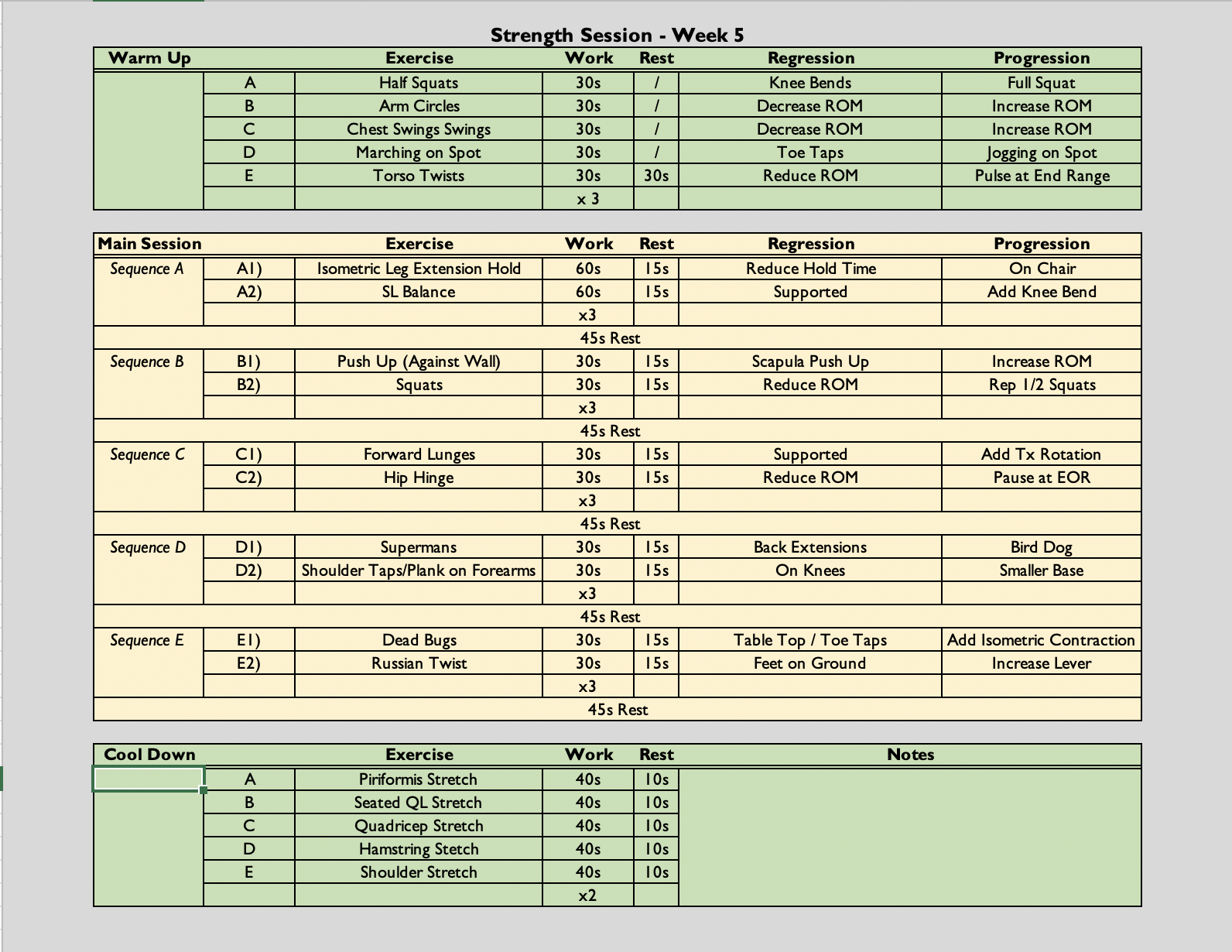20th December – 26th December
- Hours: 15
Main Theme Addressed During Phone Calls
- Enjoying the holidays without exacerbating symptoms.
- Many of the participants were concerned about how to manage the extra workload that can sometimes come with the Christmas season. Extra socialising, last minute shopping and a lot more cooking. From the class attendance it appeared that one strategy to cope with this was to put the rehabilitation programme to the back of their mind. However, from a holistic perspective I explained to individuals that it is consistency that prevails. One skipped session will not ruin their progress and equally as we have been in and out of lockdowns I didn’t want the programme to detract from the social and emotional components of their wellbeing.
- For those who were concerned about any extra energy expenditures we looked at ways to save energy elsewhere. For example, going to bed early, meal prepping over a number of days, leaving a rest day in-between big events. Many of the participants stated that they were already putting these strategies in place prior to our conversation. Therefore, I made a conscious effort to praise this and highlight that they were putting what they had learned into practice without my guidance.
- Coping with other illness and managing long-covid symptoms.
- Two participants became unwell this week. One developed a chest infection and the other a cold. Both had an exacerbation of their long covid symptoms, mainly breathlessness and fatigue. Reiterated the conversation around consistency and that missing a session or two whilst ill is not only advisable but not likely to impact their overall progress. I explained that their energy levels already weren’t 100% before getting ill so pacing, planning and prioritising are now even more key that they are suffering with another illness. I encouraged the participants to rest and keep hydrated and nourished whilst they recover. And, I advised them to return to exercise when they felt ready and at a slightly lower intensity.
- Participants sometimes struggle to understand the concept behind pacing, planning and prioritising – so I signpost to this really useful information leaflet that also gives example on how to break tasks down in order to conserver energy. This is really important as pacing has been shown to be more effective than graded exercise therapy (GET) and actually, GET makes many people with long covid feel worse (
- GP negativity towards prognosis and impact on patient.
- One patient signed off sick with her long covid symptoms. She was shocked at his negative demeanour towards her prognosis.
Strength Class
- (30 secs on (60 secs if singe leg), 15 seconds off (2:1) x 3, followed by a 45 second rest) x 5
- The class is always symptom-led as opposed to graded exercise therapy. Participants are free to rest when needed. They can end the class early if they have reached their limit and they can reduce the amount of sets they do if necessary.

Analysis & Evaluation
- In injury rehabilitation, psychological readiness is an important factor in RTP. This is why tools such as the ACL-RSI, I-PRRS and AFAQ all exist – to measure an athletes psychological readiness. Although this is not an injury rehabilitation programme, if a patient for any reason doesn’t feel confident or believe that they can either fully recover or make reasonable adjustments to return to their ADL’s then the likelihood is that they will struggle to progress over the course of the programme. Therefore, I was really surprised at the negativity the GP approached my participant with. Thankfully, this participant was aware that she was making progress and the outlook was not as bleak as the GP made it seem. However, if an individual didn’t possess this resilience and believed the authority figure giving them this poor prognosis, things may have been different. For example, the participant could have disengaged with the rehab believing it wouldn’t help them. Although, exercise is not appropriate for everyone managing symptoms of long covid it has been encouraged, in those not contraindicated to exercise, in order to aid with immunity, reduce inflammation and to reduce the chances of acquired MSK problems due to sedentary behaviour (Jimeno-Almazán, et al., 2021).
Conclusion
- I spend a lot of time trying to encourage a positive mind-set within my participants but I overlooked the external factors that could be influencing their thinking. I tend to encourage positive self-talk and praise small wins when participants have not identified them. However, external factors are something out-with my control and, to a degree, also the patients. Therefore, I am going to make a conscious effort to ask participants how they feel others have reacted/responded to their diagnosis and if that has impacted them negatively or positively.
Revisiting Reflection
References
- Jimeno-Almazán, A., Pallarés, J. G., Buendía-Romero, Á., Martínez-Cava, A., Franco-López, F., Sánchez-Alcaraz Martínez, B. J., Bernal-Morel, E., & Courel-Ibáñez, J. (2021). Post-COVID-19 Syndrome and the Potential Benefits of Exercise. International journal of environmental research and public health, 18(10), 5329. https://doi.org/10.3390/ijerph18105329
- NICE cautions against using graded exercise therapy for patients recovering from covid-19 doi:10.1136/bmj.m2912